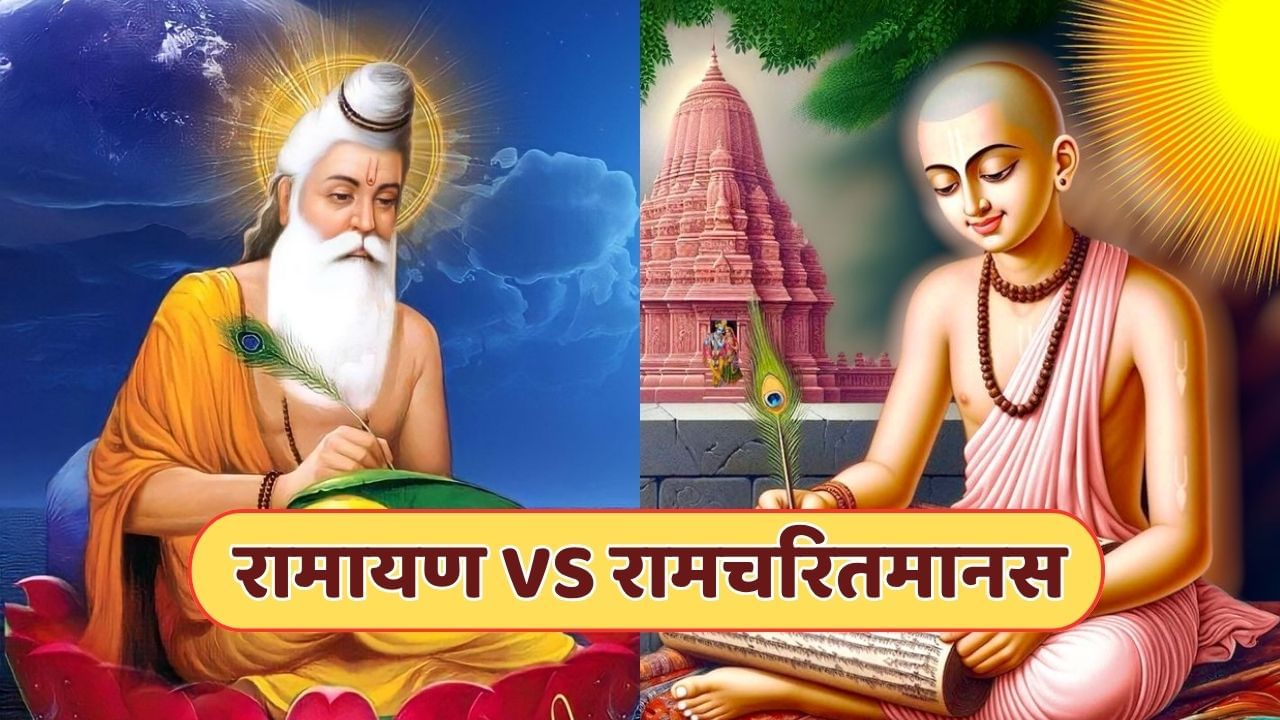Difference between Ramcharitmanas and Ramayana
Ramayan vs ramcharitmanas: There are many differences between Maharishi Valmiki’s Ramayana and Ramayana composed by Tulsidas, about which very few people know. Valmiki ji’s Ramayana is called the original Ramayana, because Maharishi Valmiki was present in the time of Lord Rama. It is said that on the basis of Valmiki Ramayana, Goswami Tulsidas ji composed Ramcharitmanas about 500 years ago. In this article, we will try to know in detail what is the difference between Valmiki Ramayana and Tulsidas’s Ramcharitmanas.
Difference between Ramayana and Ramcharitmanas (Valmiki Ramayan vs Tulsidas Ramcharitmanas)
Valmiki Ramayana is an ancient work written by Maharishi Valmiki in Sanskrit, which portrays Rama as a human -virtuous king. Whereas Ramcharitmanas of Tulsidas is a devotional book written in the 16th century in Awadhi language, in which Lord Rama is depicted as an incarnation of Lord Vishnu and a superpower. Ramcharitmanas is based on Valmiki Ramayana, but there are many important differences in language, characters depiction, verses and story contexts.
Difference between Valmiki Ramayana and Tulsidas Ramcharitmanas
Other important differences
Sita’s exile:- Sita’s exile is mentioned in Valmiki Ramayana, but it is not described in Ramcharitmanas.
Laxman Rekha:- Laxman Rekha is not mentioned in Valmiki Ramayana, while it is described in Ramcharitmanas.
Sita merged into the earth:- Mother Sita merged into the earth in Valmiki Ramayana, while she is not mentioned in Ramcharitmanas.
Other episodes:- Tulsidas has expanded many stories and episodes in Ramcharitmanas, which are not in Valmiki Ramayana such as Shabri’s shoes, half of the force of Bali, or the contribution of a squirrel in the construction of Ram Sethu.
,Disclaimer: The information given in this news is based on religious beliefs and general information. TV9 India does not confirm this.)
